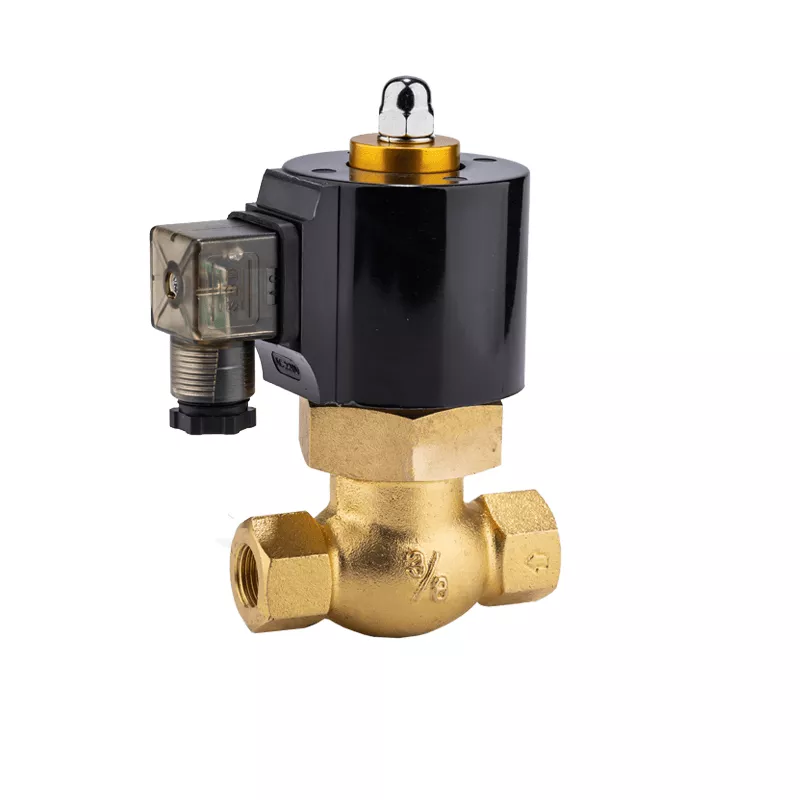Working Principle of Solenoid Valves
Solenoid valves are critical components in various industries, playing a pivotal role in controlling the flow of liquids and gases. Understanding their working principle is essential for engineers, technicians, and anyone involved in fluid control systems. In this comprehensive guide, we delve into the intricate details of solenoid valves, shedding light on their functionality, applications, and advantages.
What are Solenoid Valves?
Solenoid valves are electromechanical devices that use an electromagnetic coil to control the flow of fluids. They consist of a coil, plunger, and valve body, with different configurations available to suit specific applications. These valves can be normally closed (NC), normally open (NO), or have a universal design, allowing flexibility in operation.

Working Principle of Solenoid Valves
Electromagnetic Attraction
At the heart of a solenoid valve lies the principle of electromagnetic attraction. When an electric current passes through the coil, it generates a magnetic field that attracts the plunger towards the coil's center. This movement opens or closes the valve, depending on its design and application.
Control of Fluid Flow
The movement of the plunger regulates the flow of fluid through the valve. In a normally closed solenoid valve, the valve remains closed when the coil is not energized. Upon energization, the magnetic field pulls the plunger, allowing fluid to flow through the valve. Conversely, in a normally open configuration, the valve is open by default and closes when the coil receives power.
Applications of Solenoid Valves
Industrial Automation
Solenoid valves find extensive use in industrial automation systems for controlling the flow of liquids and gases in manufacturing processes. They play a crucial role in regulating the movement of fluids in pipelines, machinery, and equipment.
HVAC Systems
Heating, Ventilation, and Air Conditioning (HVAC) systems rely on solenoid valves for controlling the flow of refrigerants and other fluids. These valves enable precise temperature and pressure regulation, ensuring optimal system performance.
Medical Equipment
In the medical field, solenoid valves are integral components of diagnostic and therapeutic equipment. They control the flow of gases and fluids in devices such as anesthesia machines, ventilators, and laboratory instruments, contributing to patient care and safety.
Automotive Industry
Solenoid valves are widely used in the automotive industry for applications ranging from fuel injection systems to transmission control. They help optimize engine performance, improve fuel efficiency, and enhance overall vehicle reliability.
Advantages of Solenoid Valves
Fast Response Time
One of the key advantages of solenoid valves is their rapid response time. They can open or close almost instantaneously when the coil is energized or de-energized, making them ideal for applications that require quick fluid control.
Reliability
Solenoid valves are known for their reliability and durability, even in harsh operating conditions. With proper maintenance, they can provide consistent performance over extended periods, minimizing downtime and maintenance costs.
Energy Efficiency
By virtue of their on-demand operation, solenoid valves contribute to energy efficiency by only consuming power when actively controlling fluid flow. This helps reduce energy consumption and operating costs, making them environmentally friendly options for fluid control systems.
Versatility
Solenoid valves are available in a wide range of sizes, materials, and configurations, allowing for versatile integration into diverse applications. Whether it's low-pressure or high-pressure Solenoid valve, corrosive or non-corrosive fluids, there's a solenoid valve solution to meet specific requirements.
Conclusion
In conclusion, solenoid valves are indispensable components in fluid control systems across various industries. Their efficient operation, reliability, and versatility make them the go-to choice for regulating the flow of liquids and gases in a wide range of applications. By understanding the working principle and advantages of solenoid valves, engineers and technicians can optimize system performance and ensure seamless operation.



